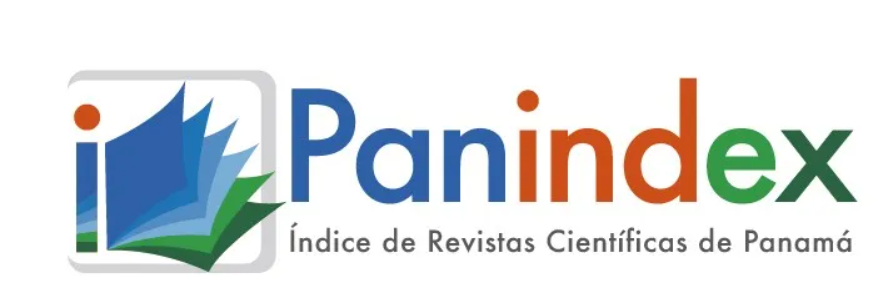Manuscripts sent to SALUTA Magazine must be original and unpublished and must not be simultaneously in the process of publication in other magazines, compilations or any other means of publication. The content of the publications and the links suggested in them are the sole responsibility of the authors and not of the METROPOLITAN UNIVERSITY OF EDUCATION, SCIENCE AND TECHNOLOGY
(UMECIT) or the magazine SALUTA. They are protected by international copyright laws as well as the logos of UMECIT AND SALUTA MAGAZINE, hence their reproduction is totally prohibited. The copyright will belong to the UMECIT.
Under a Creative Commons Attribution License authors may share work with acknowledgment of authorship of the work and initial publication in this journal.



Abstract
The research aims to analyze the relationship between the psychosocial factors present at work, associated with work stress and the impact they can cause on the health of university teachers. Regarding the methodology, the study has a quantitative approach, the study design is non- experimental since no variable is manipulated. It is cross-sectional since previous studies from 2018 to 2020 were chosen, in which it is intended to determine if the stress variables and psychosocial factors of the study are correlated. The sample made up of 460 teachers who work in universities in two Latin American countries, made up of 60% male and 40% female. The study concluded that there is a relationship between the psychosocial factors present at work, associated with work stress such as workload 18.7% and the content and characteristics of the task 21.3% significantly impacting the health of University Teachers, as for not being able to sleep 9.1%, losing their appetite or overeating 12.2% in male teachers and feeling tired all the time 7.1%, being irritated all the time 6.7% of female teachers. Although it cannot be generalized due to the size of the sample. Coinciding with some studies reviewed, in which the authors presented similar data stating that psychosocial factors generate stressful situations in teachers.
Keywords
References
Alvites-Huamaní, C. G. (2019). Estrés docente y factores psicosociales en docentes de Latinoamérica, Norteamérica y Europa. Propósitos y representaciones, 7(3), 141-159.
Barreros Ch, P. M (2017). Factores de riesgos psicosociales y su relación con el clima laboral. MasterThesis. Editorial: Ecuador: Latacunga: Universidad Técnica de Cotopaxi (UTC).
De la Cruz, E. (2017). Estrés laboral y desempeño docente en la I.E. No. 89002, Chimbote, 2017 (Tesis de Maestría). Universidad César Vallejo, Perú.
Cabrera, A. F., Cruz, C. S. L., & Sánchez, S. P. (2019). Análisis de la competencia digital docente: Factor clave en el desempeño de pedagogías activas con Realidad Aumentada. REICE: Revista Iberoamericana sobre Calidad, Eficacia y Cambio en Educación, 17(2), 27-42.
Chiang, M., Heredia, S., & Santamaría, E., (2017). Clima organizacional y salud psicológica: una dualidad organizacional. Dimensión Empresarial, 15(1), 63-76. https://www.produccioncientificaluz.org › article › view
Fernández-Puig, Longás, J., Chamarro, A. & Virgilio, C., (2015). Evaluando la salud laboral de los docentes de centros concertados: el cuestionario de salud docente. Journal of Wrok and Organizational Psychology, 31, 175-185.doi: ...https://www.sciencedirect.com › science › article› piicente.
García-Moran, M., & Gil-Lacruz, M., (2016). El estrés en el ámbito de los profesionales de la salud. Persona 19, 11-30 ...https://repositorio.uide.edu.ec › T-UIDE-2301.
Graneros, J. (2018). Factores psicosociales en el trabajo y estrés laboral en colaboradores de una empresa de ingeniería-Lima, 2017 (Tesis de Maestría). Universidad Peruana Cayetano Heredia, Perú
Instituto Nacional de Estadística e Informática (2017). Lima-Perú infoinei@inei.gob.pe. Recuperado de https://www.geoidep.gob.pe/instituto-nacional-de-estadistica-e-informatica
J. Gonzalez, L. Subaldo (2015). Opiniones sobre el desempeño docente y sus repercusiones en la satisfacción profesional y personal de los profesores. Vol. 24 Núm. 47
Minda, H. M., Álava, L. A. R., & Ostaiza, K. G. C. (2019). Estrés laboral en los docentes del circuito 03 distritos 13D11 de la zona 04 de educación y estresores psicosociales prevalentes. Revista Cognosis. ISSN 2588-0578, 4(1), 83-98.
Organización Mundial del Trabajo (2016). Estrés en el Trabajo. Un Reto Colectivo. Diseño e impresión por el Centro Internacional de Formación de la OIT, Turín – Italia.
Organización Mundial de Salud (OMS). Entornos laborales saludables: fundamentos y modelo de la OMS: contextualización, prácticas y literatura de apoyo [en linea]. Ginebra: OMS; 2010 [citado jun 2017]. Disponible en: Disponible en: http://www.who.int/occupational_health/evelyn_hwp_spanish.pdf
Pérez, J. (2018). Evaluación de factores de riesgo psicosocial y estrés laboral de los docentes de la facultad de ingeniería y arquitectura de la Universidad Peruana Unión Filial Tarapoto, 2017 (Tesis de Maestría). Universidad Peruana Unión, Perú.
R. Gómez et.al. (2014). Síndrome de Burnout Docente. Fuentes de estrés y actitudes cognitivas disfuncionales. Boletín de Psicología, No. 112, 83-99.
R. Sampieri, C. Fernández (2014).Metodología de la Investigación. McGraw-Hill/ Interamericana Editores, S.A. de C.V.
Sánchez, R., (2017). Factores sociolaborales y estrés en docentes de secundaria de la ciudad de Huancayo. (Tesis de Maestría) Universidad Nacional del Centro del Perú.
Tacca Huamán, D. R., & Tacca Huamán, A. L. (2019). Factores de riesgos psicosociales y estrés percibido en docentes universitarios. Propósitos y Representaciones, 7(3), 323-338.
Tamayo, M. (2006). Diccionario de la investigación científica.
Downloads
Publication Facts
Reviewer profiles N/A
Author statements
- Academic society
- Universidad Metropolitana de Educación, Ciencia y Tecnología
- Publisher
- Universidad Metropolitana de Educación, Ciencia y Tecnología



















